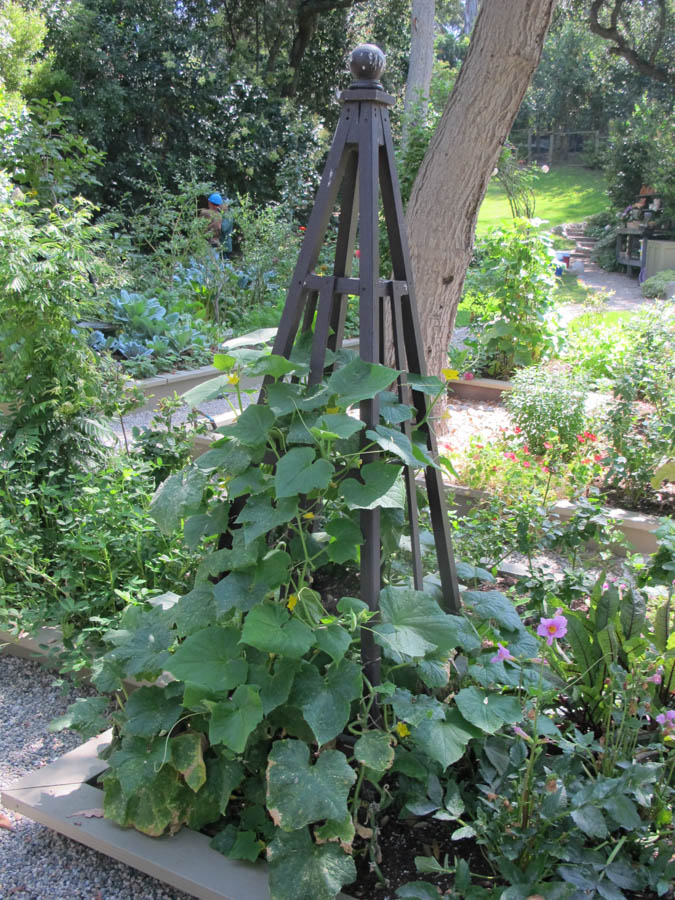Encouraging Cucumber Pollination Through Companion Planting

Because lack of pollination is a primary reason for poor yield, GardenZeus recommends encouraging bees to visit your cucumbers by planting them near borage, nasturtiums, rosemary, oregano, and other heat-tolerant, bee-attracting herbs and plants. Traditional lore suggests that close planting with some of the aromatic herbs in the list above and others including sage in particular, may adversely affect cucumbers, including the taste of fruits. This is unproven by research and GardenZeus expert Darren Butler has never found it to be an issue.
Allowing vegetables like radishes and carrots to flower and persist in your garden may also attract bees and help with cucumber pollination. Timing the flowering of radishes is tricky at best. During warm weather, planting radishes 30 days or so before planting cucumbers in the same area may both help discourage cucumber beetles and time radish flowering for approximately the time that cucumbers will be in bloom.
Avoid planting root crops, such as beets, onions, and potatoes near cucumbers, which may disturb cucumber roots when harvested.
With the long vines and sprawling habit of many varieties, cucumbers may overwhelm smaller plants and shade them out with large leaves. Cucumbers can be successfully grown with tall or large columnar plants, such as sunflowers and amaranth.
Traditional companions for cucumbers include corn, dill, marigolds, nasturtiums, and sunflowers. Cucumbers are considered a deterrent to raccoons and are sometimes planted near corn for this reason, but GardenZeus expert Darren Butler considers this an unwise combination partly because corn can be a strong attractor for cucumber beetles, but also simply because not much will stop a hungry raccoon short of a big aggressive dog or two.
To view complete instructions for growing cucumber in your area, go to GardenZeus and enter your zip code, then go to cucumber. For tips on watering cucumber, see The GardenZeus Guide to Watering Cucumbers, Melons and Squash (Cucurbits).